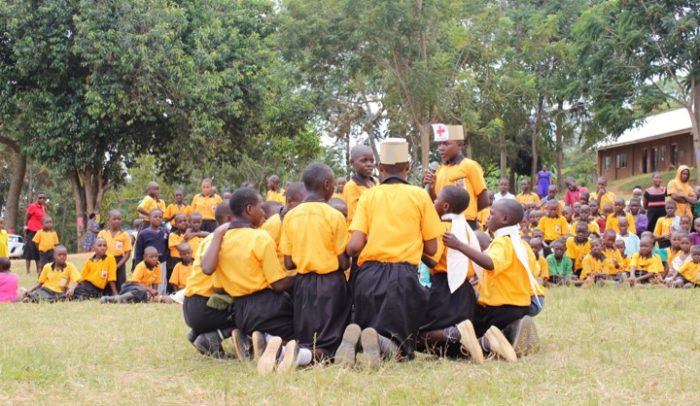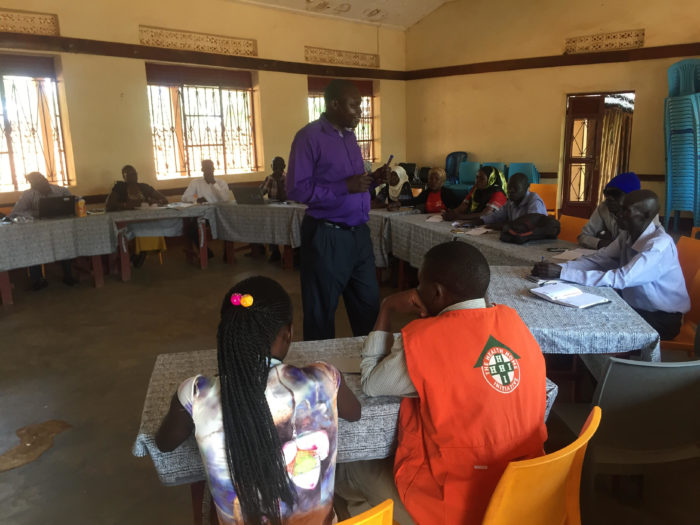Banyan Global Gender and Youth Team Launches Community-Based Malaria Activity in Uganda
In June, the United States Agency for International Development (USAID)-funded Malaria Action Program for Districts (MAPD) in Uganda launched Vijana Leo (Youth Today), a community-based malaria activity for youth, to address the barriers that limit youth’s access to malaria-related health services.
Vijana Leo’s goal is to build the capacity of district health management teams (DHMTs) and community development offices (CDOs) to encourage youth across their districts to play a more active role in managing their health by increasing youth’s access to malaria health services and meaningfully engaging youth to elevate their participation in their communities’ malaria responses.

Youth in Uganda participate in the community-based Vijana Leo activity.
Banyan Global gender and youth specialists on MAPD organized the launch of the activity in Yumbe District in the West Nile region, which was chosen as the pilot location due to its high rate of positive test results for malaria and high rate of malaria-related deaths. Over two days, members of the DHMT and CDO joined local youth representatives in educational sessions focused on promoting strength-based approaches to malaria prevention. The sessions encouraged partnerships between youth and adults, identified ways to increase youth participation and engagement in malaria prevention and treatment activities, and discussed how to address facility- and community-level challenges and constraints that hinder youth participation within their communities and their access to malaria prevention, diagnosis, and treatment services.

Robert Abiriga, MAPD West Nile Regional Coordinator, speaks at an educational session to promote strength-based approaches to malaria prevention.
Under the Vijana Leo program, the district’s adolescent health team will support the selection and orientation of youth champions who will design and implement community-based activities in their town council cells as part of the district’s efforts to reduce the malaria burden in the region. At the same time, these young people will increase youth participation in health-related activities that foster positive attitudes toward malaria prevention and case management. According to one adolescent health educator, “I think it is our role as leaders to support young people in the community to participate in activities that give them opportunities to play active roles when addressing issues that affect their wellbeing.” Overall, Vijana Leo will promote youth voice, equity, and inclusion in the fight against malaria.
Moving forward, Banyan Global will monitor Vijana Leo to understand what affects, if any, the promotion of youth integration at the community level that targets both in- and out-of-school youth has on malaria outcomes. Eventually, the Vijana Leo program will expand beyond the pilot region to other areas of the country.
